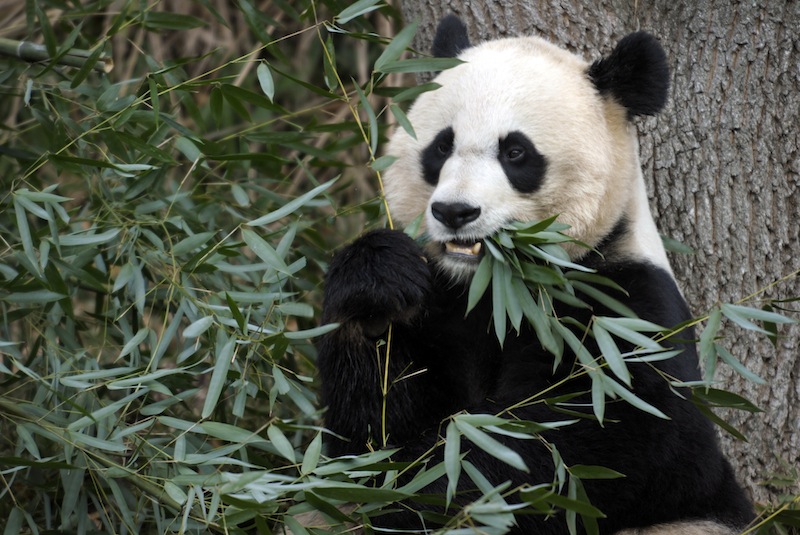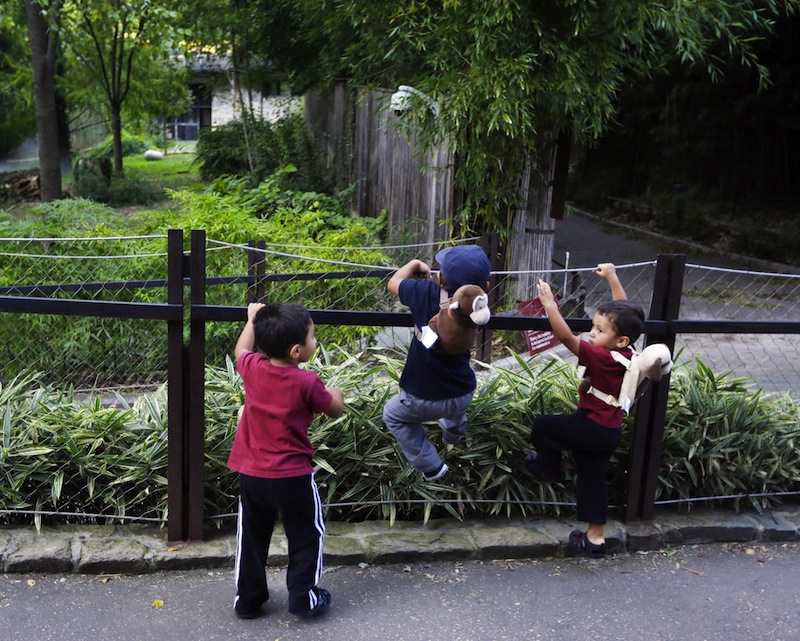WASHINGTON — A giant panda at the Smithsonian’s National Zoo is a mother for the second time, giving birth to a cub after years of failed pregnancies.
Scientists at the zoo had all but given up on Mei Xiang’s chances of conceiving, but late Sunday, the 14-year-old Panda gave birth to a hairless cub that is about the size of a stick of butter. The next few days will be critical and the newborn, as part of Chinese tradition, will be named when it is 100 days old.
Just four zoos in the U.S. have pandas, and Washington’s pandas have special significance. They were the nation’s first set of pandas in 1972, a gift from China to commemorate President Richard Nixon’s historic visit to the country.
The current panda couple, Mei Xiang and her mate Tian Tian, are only the second pair of pandas to live at the zoo. They’re treated like royalty, and any offspring gets immediate star status.
“There’s something very special here with our pandas,” giant panda curator Brandie Smith. “Everyone is part of our family. We, Washington, D.C., have had a baby panda cub.”
Mei Xiang gave birth to her first cub, a male named Tai Shan, in 2005. Zoo officials tried artificially inseminating her five times since 2007. Each time, Mei Xiang went through what is called a “pseudopregnancy,” building a nest and experiencing high hormone levels. But each time there was no cub.
Scientists at the zoo worried she had become infertile and believed there was a less than a 10 percent chance she would become pregnant after so many failed attempts. As a result, they had considered replacing Mei Xiang or 15-year-old Tian Tian with other pandas.
Still, there was hope and they attempted artificial insemination again this year.
“Every year I believe with all my might that this is the year,” said Smith, who has been at the zoo for the last four years.
Smith said she got a call from one of the keepers Sunday at 10:47 p.m. “I think I hear a panda cub,” the keeper said. Smith and several others then got on their computers to watch the zoo’s panda cam. Sure enough, there was the unmistakable bird-like screech of a cub.
Keepers had blocked off the panda exhibit weeks ago, hoping to keep the area quiet for their possibly-expectant mother. An incubator has been running for weeks just in case the cub needed to be hand raised.
For now, Mei Xiang is doing well and responding to the cub’s cries. Keepers will continue to watch the two on camera, the same view the public has online. They’ve so far only gotten fleeting glances of the cub.
Keepers will likely do their first exam in three to four weeks, and it will be four to five months before the public can see the cub in person.
Still, there’s some danger. Pandas have accidentally crushed their small cubs. And the first panda couple to live at the zoo, Ling-Ling and Hsing-Hsing, had five cubs, but none of them survived more than a few days.
The new cub will be named Dec. 24. Under an agreement with the Chinese government, zoo officials can keep the cub for four years before it has to go back to China.
For now, however, there’s a glow of amazement after “hoping and hoping and hoping for all these years,” said Marty Dearie, one of about half a dozen panda keepers at the zoo.
“We’re excited and in disbelief all at the same time,” Dearie said.
Send questions/comments to the editors.



